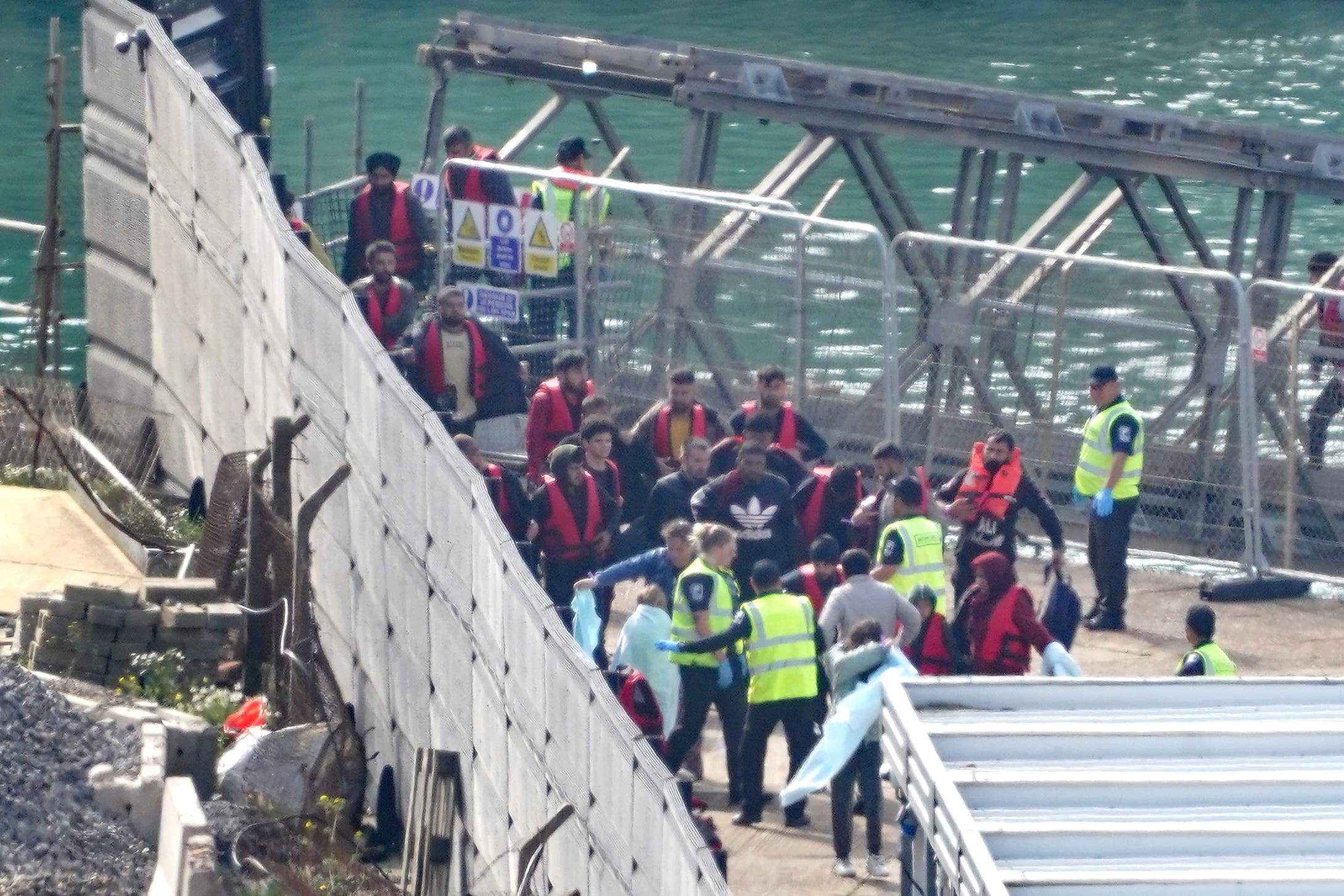Channel crossings top 14,000 for year so far
According to Home Office data, 297 people were detected on Wednesday in six boats.

More than 14,000 migrants have arrived in the UK so far this year after crossing the Channel, figures show.
According to Home Office data, 297 people were detected on Wednesday in six boats, suggesting an average of around 50 people per boat.
The latest arrivals take the provisional total for 2023 to date to 14,071.
On Tuesday, 574 people made the journey, marking the second highest number of arrivals on a single day this year.
The total number of migrant crossings for 2023 so far is still lower than the more than 15,000 arrivals recorded this time last year.
Overall, 45,755 people made the journey in 2022.
The crossings come as the Illegal Migration Bill is poised to become law and just days after the Government hailed its sweeping asylum reforms passing through Parliament.
The much-criticised flagship legislation, central to Prime Minister Rishi Sunak’s pledge to “stop the boats” crossing the Channel, is expected to be given Royal Assent on Thursday.
The reforms will prevent people from claiming asylum in the UK if they arrive through unauthorised means.
The Government also hopes the changes will ensure detained people are promptly removed, either to their home country or a third country such as Rwanda, which is currently the subject of a legal challenge.
But campaigners have condemned the legislation, arguing that it will not stop Channel crossings, will fail without the Rwanda deal, and fear it could see refugees detained indefinitely.
Sonya Sceats, chief executive of the charity Freedom from Torture, branded the Bill “deeply immoral”, adding: “We will not stop fighting for a kinder, fairer UK.”
A growing number of people will be left in limbo as they cannot be removed, and they cannot claim asylum. The cost to the taxpayer will continue to increase as the individuals left in limbo are housed in various accommodation indefinitely
Lubna Shuja, president of the Law Society of England and Wales, warned the legislation was “unworkable”, would not solve problems with the asylum backlog, and threatened to “undermine the rule of law and access to justice”.
She said: “A growing number of people will be left in limbo as they cannot be removed, and they cannot claim asylum.
“The cost to the taxpayer will continue to increase as the individuals left in limbo are housed in various accommodation indefinitely.
“There is a severe lack of asylum and immigration solicitors to represent those who are subject to removal orders.”
The United Nations previously denounced the Bill, warning that it broke the UK’s obligations under international law.
Downing Street has defended the legislation, with officials saying the Government is confident it is acting within international law.
Meanwhile, earlier this week, a barge which will house 500 asylum seekers was met by protesters as it arrived in Dorset’s Portland Port a month behind schedule. Two other cruise ships set to house migrants have reportedly been unable to find a berth.
The Home Office said around 50 asylum seekers would board the Bibby Stockholm from next week, with the numbers rising to its maximum capacity over coming months, despite safety concerns raised by some of the county’s Conservative MPs and locals.
The Government stood by its decision to use barges to house migrants, insisting it was a cheaper alternative to housing them in hotels.
Bookmark popover
Removed from bookmarks